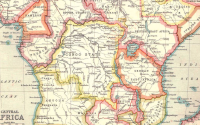Common Dreams / Published on Saturday, May 14, 2005 by the Guardian/UK
One of the most chilling aspects of the Iraqi conflict is that suicide bombings have now become a matter of everyday routine. During April there were 67, a new record. On Wednesday there were no less than five separate suicide attacks across Iraq, killing 71 people and injuring scores of people.
The rate of suicide bombings - the seemingly endless supply of people prepared to blow themselves up - leaves a western audience utterly bewildered. What kind of psychology motivates people to such violent extremes? The incomprehension prompts revulsion that this form of warfare is historically unprecedented and reveals a peculiar, aberrant irrationality - a kind of inhuman madness. All too quickly, Islam is blamed for deluding its believers into martyrdom with promises of 72 virgins; the old prejudices about Islam as a faith uniquely associated with violence and unquestioning belief are fanned into life again.
But such prejudices won't get us very far in trying to unpick which elements of this violent phenomenon are in fact unprecedented and which are not - or to understand why the strategy has been adopted.
There are two obvious factors. First, the plentiful supply of volunteers crossing into Iraq reflects the radicalization of a generation of the newly urbanized, under-employed, fast growing populations of many Muslim countries in the Maghreb and the Middle East. Second, suicide attacks are the single most effective weapon against the vastly superior armed force of the US in their heavily defended camps. Along with more conventional resistance tactics, suicide bombings are helping to cripple Iraqi reconstruction and fueling resentment of the occupation. This has successfully derailed US hubris in a "regional redesign". How else could all these aims have been achieved?
But even while grasping this, suicide bombings still profoundly outrage western sensibility. There are two separate aspects of the current wave: the use of suicide as a tactic of war; and the tendency to deploy it recklessly against soft or civilian targets outside the theater of conflict. The latter is a familiar feature of different forms of terrorism - so nothing much new there. Suicide attacks also have historical precedent; but what does seem new, first in Palestine and now in Iraq, has been the combination of the two and their frequency. It is that particular combination of individual motivation to kill oneself and the cold ruthlessness to stand among the people one is going to kill before detonating oneself which is hardest to understand.
Tracing the history of how suicide has been used as a weapon and as a protest through history offers up many illuminating parallels to what might motivate those who undertake the suicide missions in Iraq. It was the Japanese who made the use of suicide as a military strategy so feared, and the Tamil Tigers in Sri Lanka in the 1980s who applied it as a technique for assassinations. Both were part of wider military efforts which were not always easily distinguishable from a suicide mission. The line in war between a suicidal mission and a reckless disregard for one's own life can be very blurred.
This was true in the Soviet struggle against the Germans in the second world war. Some Soviet pilots undertook explicit suicide missions to ram bridges in Germany in 1945; many others went into battle knowing they would die, and saw their death as a sacrifice for the "motherland". It is the powerful who determined how such events are understood; while the Japanese and Islamist militants are feared as inhuman, the Soviets are celebrated for their courageous defiance of nazism.
The idea of suicide to serve a set of beliefs is also deeply rooted in history. The staging of the current brilliant production of Julius Caesar in London pointedly refers to Iraq with its US military fatigues and the set of a military warehouse. Several suicides in the final scenes lead to Brutus's poignant comment that swords have been turned "in our own proper entrails". Roman republicanism, imperial Japanese militarism: both elevated suicide as an honorable part of military valor.
Even more closely related to Iraq's suicide bombers is the fascinating description of early Christian martyrdom in Farhad Khosrokhavar's new book, Suicide Bombers. The suicidal recklessness of a large number of early Christians, aimed precisely at bringing about their martyrdom, bewildered and horrified contemporary commentators. But martyrdom was an astonishingly effective propaganda tool designed to inspire awe - and converts. The Greek origin of the word martyr is "witness". Interestingly, it prompted exactly the same sorts of criticism among pagan Romans as today's Islamist militants do in the west: the Christian martyrs were accused of dementia and irrationality. Such was the flood of Christians in pursuit of martyrdom by the third century that the theologians had to step in to declare this thirst for a holy death to be blasphemous.
That concept of using your death to bear witness to a cause, without killing others, has prompted more than 1,000 suicides since 1963, when a Buddhist monk set himself on fire in protest against the oppression of Buddhism in Vietnam. Global mass media ensure that this individual protest has impact across the world; it is a desperate but hugely effective way to give the cause prominence.
Elements of all these precedents can be traced in the research done on motivations of suicide bombers in Palestine, Chechnya and al-Qaida and probably now those in Iraq. A sense of humiliation and the need to avenge honor on the part of their faith and/or people (or a potent combination of both as in Iraq) is emphasized by Khosrokhavar. He also picks up on how hating the world (because of the experience of injustice and oppression) leads to a longing for death - a rejection of this world's vale of tears.
These are concepts which are very difficult for westerners living largely comfortable lives to grasp. Honor is meaningless to us; we have replaced it with a preoccupation with status and self-fulfillment. We dimly grasp self-sacrifice but only apply the concept to our raising of children. Meanwhile, nothing can trump our dedication to the good life of consumer capitalism, and certainly not any system of abstract beliefs. Not having experienced the desperation of oppression, we have little purchase on the extremism it might engender. Meanwhile, we have medicalized rather than politicized the condition of hating the world and longing for death. The gulf in understanding yawns wide.
But our outraged incomprehension of suicide bombing is also partly because it is the opposite of how we have come to believe wars are fought. It is not the high technology of laser-guided bombs, nor the strangely sterile detachment of the airplane camera without any images of the screams, smashed bones and blood. The west can only now kill from a distance - preferably from several thousand feet up in the air or several hundred kilometers away on an aircraft carrier. It is the very proximity of these suicide missions which is so shocking. This kind of intimate killing is a reversion to pre-industrial warfare - the kind of brutality seen in the thirty years war, for example. Suicide bombers in Iraq are a new permutation of old traditions; they have no monopoly on the horrors they reveal of the human psyche and its capacity to destroy life.






